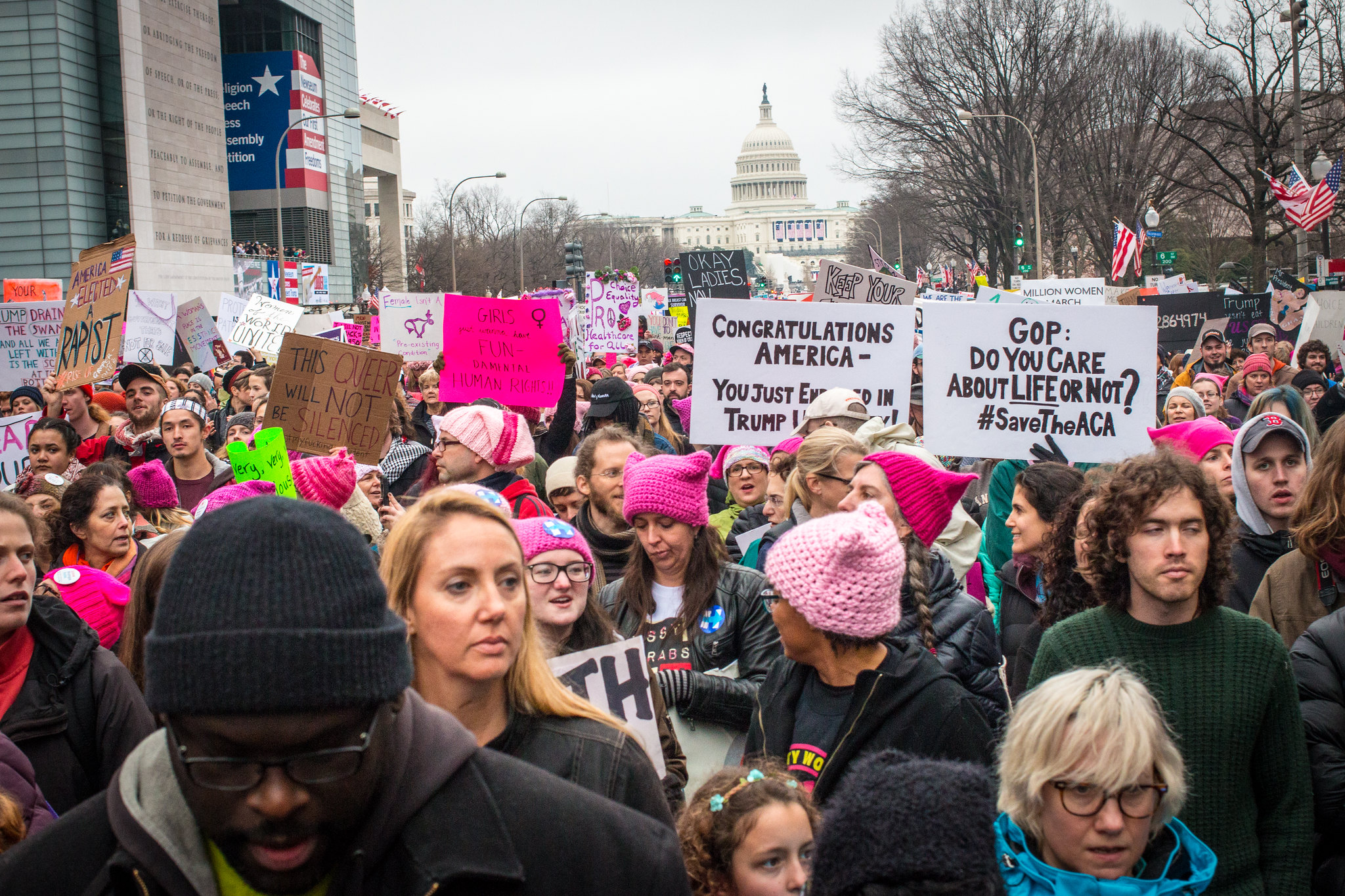Last January, our editorial board wrote that there were several fundamental problems with the Women’s March. Even though we stood by the movement’s founding principles, we advocated sitting out the march. Last year’s Women’s March was regarded by many as evidence the grassroots uprising grew out of anger at President Trump’s election and was unsustainable. This year, however, the Women’s March will be oriented toward inclusivity, grassroots organizing, and a more issues-focused mission.
This year there have been major structural changes in the organization that puts together the event, also referred to as Women’s March. They reflect the tremendous evolution the organization has undergone over the past year. We commend these changes and advocate for attending the march on Jan. 18.
In our previous editorial, we focused our criticism of the movement on the anti-Semitism many women within the organization felt. We were not the only ones to do so. Women in the organization felt as if they were being “cast aside” because they were Jewish, and Latina and black women have complained about the movement not taking their input. Women’s March drew a lot of criticism in the media for this hostile atmosphere, as well as the organizers’ link to Louis Farrakhan, long-time leader of the Nation of Islam, who has made public anti-Semitic statements. The concerns with the leadership, along with a failure to include LGTBQ+ communities and the hierarchical structure of the organization, hurt the organization and muddled its message.
However, the three original co-chairs of the board, who were embroiled in stories of anti-Semitism, financial mismanagement, and infighting, were replaced by a board of 16 women last July. This new board brings several new aspects of diversity to the organization, including Jewish women, a transgender woman, and a Palestinian American woman. This change in leadership reflects a desire to focus more on grassroots-level organizing, as all of these women are local activists or leaders. The board is focusing the message of this year’s march on three topics, which they chose based on a poll conducted last year: reproductive rights, climate change, and immigration.
The organization has also changed the format of the march itself, which will no longer feature a stage with famous keynote speakers. Instead, the board will march alongside protesters with banners, and the march will culminate at the White House with a group of Chilean activists leading participants in the song “El Violador Eres Tú,” which has been taken up by feminist gatherings around the globe.
The Women’s March organized a series of events during the week leading up to the march, including a panel discussing why women lead on climate justice on Jan. 13 and a session on immigration justice on Jan. 15. On the day after the march there will be a “Fourth Wave Drag Brunch.” These more inclusive events show the board wanted to foster deeper conversations about the issues central to the march’s purpose, something they were criticized for not doing well enough in previous years. The Women’s March’s efforts to reform should be commended, especially as they represent what we want from our community activists—a focus on what members of the grassroots movement want to address rather than the management’s particular agenda.
When the march drew thousands of attendees last year, rather than the several hundred thousands who participated in the original march, critics of the direction the organization had taken said it showed the movement was not sustainable. They touted the 2018 election and its record number of women elected to office to show the Women’s March is no longer necessary. This is not true.
Just this month, 205 Republicans and two Democrats in Congress signed an amicus brief in the Supreme Court asking they revisit the landmark abortion case Roe v. Wade (1973). This ties into one of the three policy goals the Women’s March is focusing on this year: reproductive rights. The brief is just the latest in a series of attacks the ideological right has made in recent years on reproductive rights. It is important that critics of the organization not let up on the mission because of victories some women have won, like the record number of women elected to office or the attention given to the #MeToo movement.
Tomorrow is the day of the march, and we should all go. Not only should we appreciate the efforts the Women’s March has made to be more inclusive and focus on what women want, but the issues they are focusing on are important, relevant, and worth protesting over. Take advantage of the proximity we have by being in D.C. and attend the Women’s March to fight for women’s rights and their causes.






